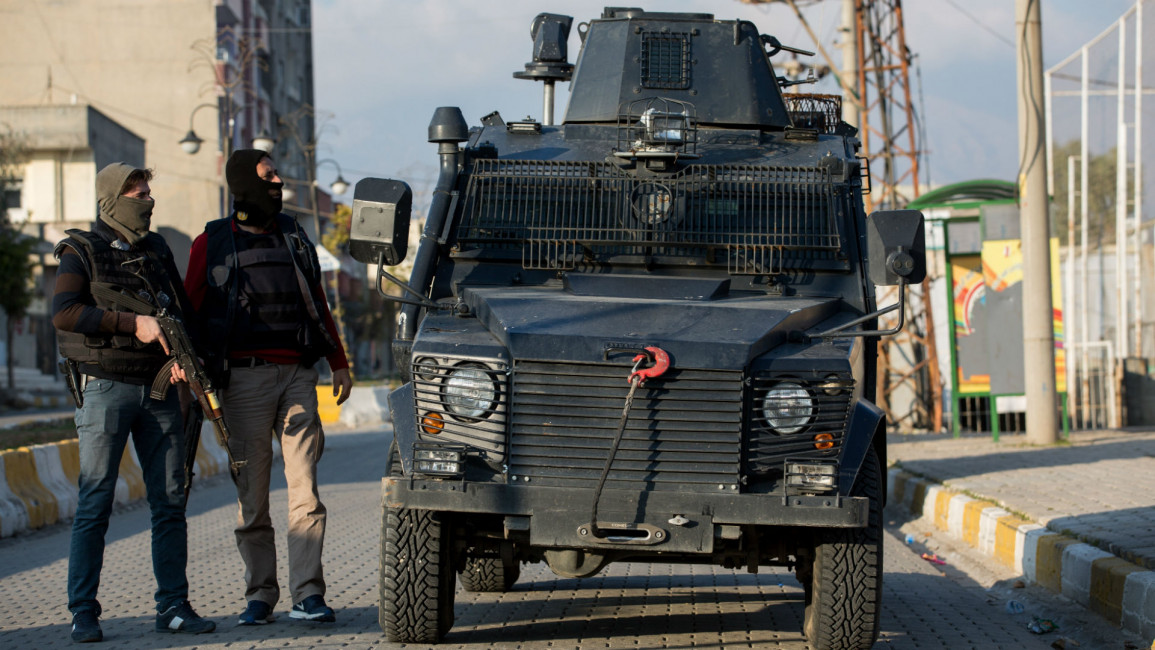70 killed in major anti-PKK operation in south-east Turkey
Eight PKK rebels have been killed since Friday, taking the death toll in the unprecedented offensive by the army and police on pro-PKK bastions in three towns and cities to 70, the army said on its website.
The army said it had also carried out airstrikes on PKK "hideouts" and "weapons sites" across the border in northern Iraq, where the outlawed group has its rear bases.
A Turkish soldier was killed in the operations Saturday, bringing the death toll on the army side to two.
Some 10,000 troops backed by tanks have been deployed in the south-east to try and rout young PKK supporters from urban areas, according to local media.
| The operations mark a new escalation in five months of fighting between the army and the PKK |
The operation, which has targeted the towns of Cizre and Silopi in Sirnak province as well as a neighbourhood in Diyarbakir, the largest city in the region, began on Wednesday according to the army.
Thirty-six militants were killed on Thursday alone.
Army chief Hulusi Akar visited Sirnak province on Saturday for a briefing by the local military command.
The army said that two schools that had been used by the PKK as hideouts had been rendered inoperable while a stash of arms had been seized in Silopi.
The operations mark a new escalation in five months of fighting between the army and the PKK since a two-and-a-half year truce collapsed in July.
In early November, the PKK said it had torn up a unilateral truce in Turkey after a surge in deadly violence after the AKP [Justice and Development Party] won the parliamentary election a few days earlier.
President Recep Tayyip Erdogan vowed Ankara would press ahead with its military campaign against the rebels in a conflict that has plagued Turkey for more than three decades.
About 45,000 people have been killed since the PKK launched an armed campaign for greater autonomy in south-eastern Turkey in 1984.
Violence flared up in July between the guerrillas and government forces after a deadly bombing against activists in a Kurdish majority town, shattering a 2013 ceasefire reached after secret talks between Ankara and the PKK's jailed leader Abdullah Ocalan.
After the devastating suicide bombings on a pro-Kurdish peace rally in Ankara in October, the PKK said it would suspend all attacks, except in self-defence - a move seen as aiming to ease tensions ahead of elections.
Emboldened by its surprise election victory, the AKP has since gone on the offensive against both the Kurdish rebels and opponents of Erdogan, including critical media.



